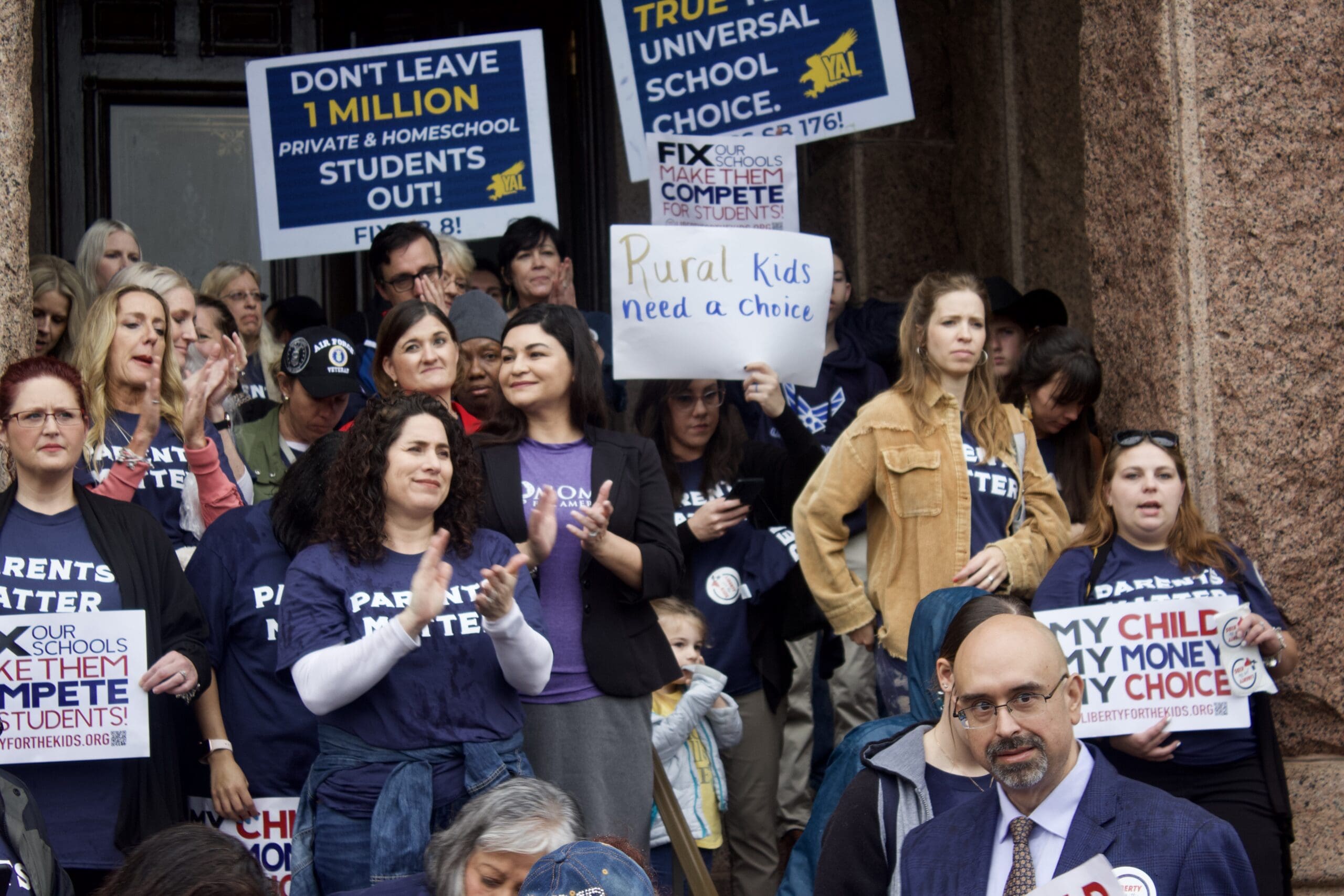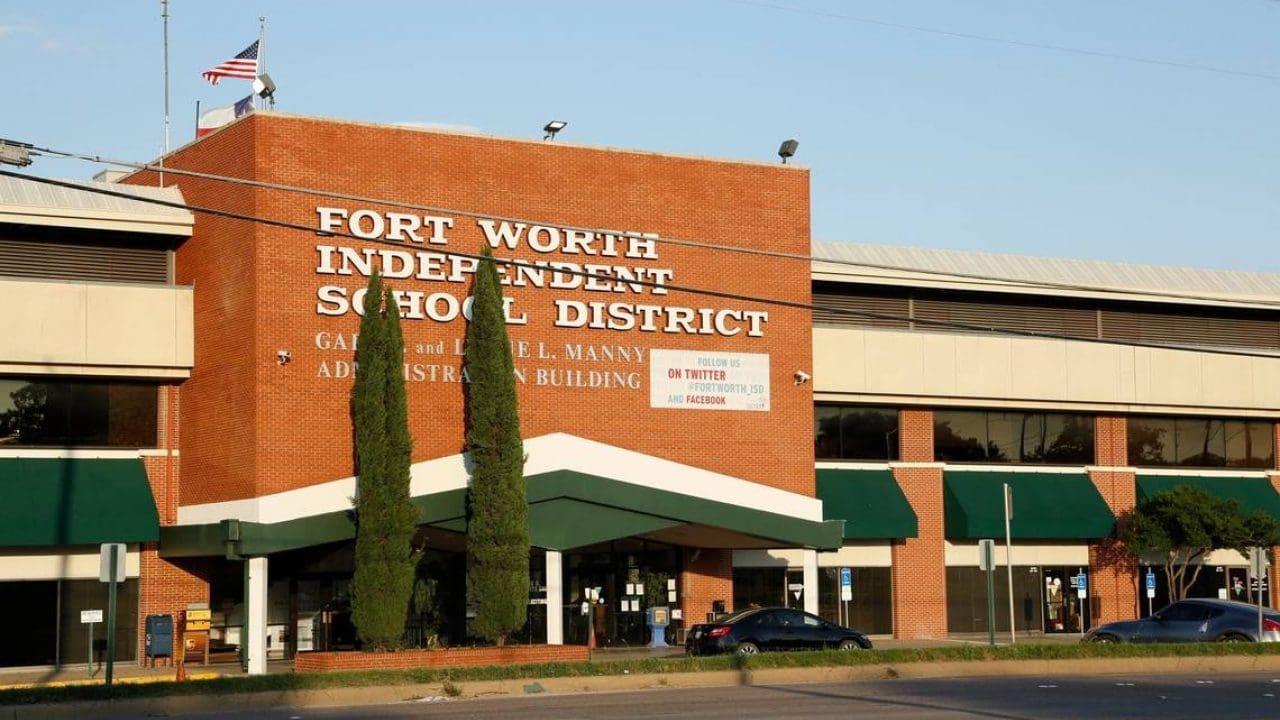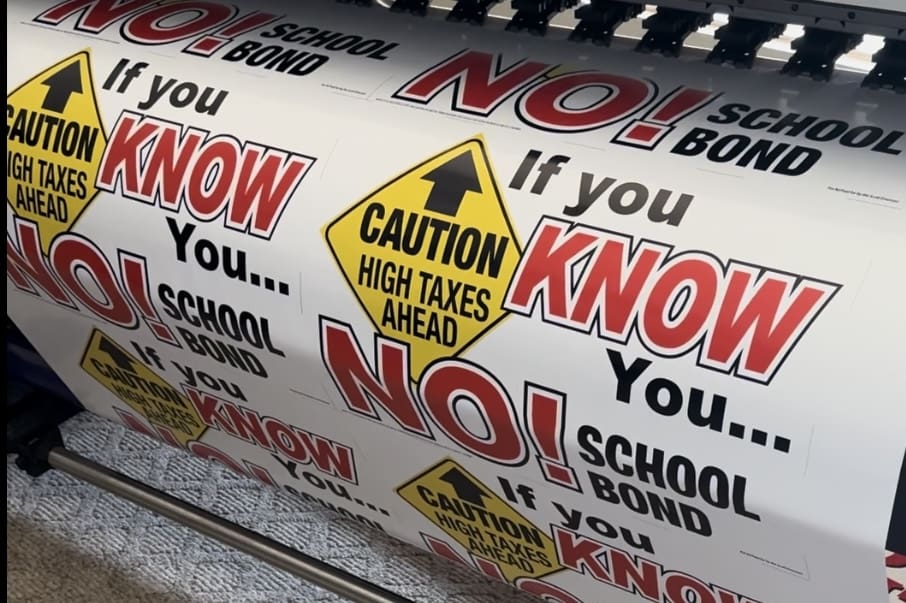While school choice has been a top priority for the Republican Party of Texas and Gov. Greg Abbott, the Texas House has continually shot down the priority, leaving many parents frustrated.
During Abbott’s gubernatorial race last year, he said that he supports school choice and fully funding government schools, saying, “Empowering parents means giving them the choice to send their children to any public school, charter school, or private school with state funding following the student.”
Prior to the 88th legislative session, the Texas GOP made parental rights and education freedom a legislative priority, including “the choice of schooling where the money follows the child without strings attached.”
Before the start of the regular legislative session, State Reps. Matt Shaheen (R–Frisco) and Cody Vasut (R–Angleton) filed measures that would address school choice in the House. However, they were never voted on.
Meanwhile, State Sen. Brandon Creighton (R-Conroe) filed Senate Bill 8, a priority for Lt. Gov. Dan Patrick. The bill would have created an education savings account administered by Comptroller Glenn Hegar’s office in conjunction with “educational assistance organizations,” which would provide $8,000 of state funding per year for each student enrolled.
As the Texas House continued to slow-roll school choice, Patrick and Phelan began to make jabs at each other over key legislative issues during a Texas Public Policy Foundation Summit.
Phelan took a shot at Patrick, saying, “I know what to do this session when it comes to criminal justice, and it’s just pass everything that the Senate did not pass last session … We’re gonna pass it again. I figure if it’s good enough for TPPF, it’s good enough for Donald Trump, it should be good enough for the Texas Senate.”
Later, Patrick mimicked Phelan’s jab when asked about school choice—which has been repeatedly killed in the House—saying, “School choice. I can tell you that the Senate likes it, TPPF likes it, Donald Trump likes it, so it should be good enough for the House.”
During the fight in the Texas House, several Republican State Reps. supported an amendment to the state’s budget that would block Texas from paying for school choice programs, including vouchers, education savings accounts, and tax credit scholarships using money in the state budget. The amendment passed the House in a vote of 86-52-11, with 23 Republicans voting in favor and 9 present but not voting.
Meanwhile, the Senate voted 18-13 to pass Creighton’s bill, but it would be left pending in the House’s Public Education Committee, where it later died.
After the 140-day-long session ended, Abbott made it known that he would not back down and would call a special session to address the issue.
Prior to a special session dedicated to school choice being called, Phelan created a Select Committee on Educational Opportunity and Enrichment, which he said would “begin working immediately to develop a workable roadmap for legislation in the House.”
Soon after, Abbott called a special session dedicated to creating education savings accounts for all Texas school children, border security, Colony Ridge, and ending COVID-19 restrictions.
The Texas Senate quickly moved on school choice legislation, where the Senate Education Committee debated Senate Bill 1 by Creighton and passed it out of committee in a vote of 10-3. The full Senate chamber then voted to pass the legislation, and it was sent to the House’s Select Committee on Educational Opportunity & Enrichment where most of the members either voted against or refused to cast their vote on school choice during the regular legislative session.
As SB 1 sat in the committee, State Rep. Brad Buckley (R–Salado) filed House Bill 1—a nearly 200-page proposal that combined teacher pay raises with a very limited education savings account program. However, the legislation didn’t make it far, as Abbott said it didn’t match his expectations.
In November, Abbott said that he had struck a deal with Phelan on school choice. According to Abbott’s office, the proposed legislation to expand school choice in Texas included phasing out the State of Texas Assessments of Academic Readiness (STAAR) Test, billions more in funding for Texas public schools, and students receiving approximately $10,400 per year in their Education Savings Accounts.
However, soon after, the House failed to meet quorum—with most Democrats and 20 Republicans failing to show up—stopping the legislation from being heard and passed. Buckley said after business was concluded that the timeline was “too tight for the House to be able to move something in this special.”
After the third special session had ended, Abbott immediately called a fourth special session dedicated to border security and school choice.
A few days later, the House finally passed school choice legislation out of committee. The legislation would have created an education savings account of approximately $10,500 available to any child. However, after a week of sitting on the legislation, the House voted to strip the school choice program out of the spending proposal and Buckley, who wrote the House’s school choice legislation, moved to send it back to committee.
The fourth special session ended without any school choice legislation making it to Abbott’s desk. However, it is unclear if Abbott will call a fifth special session after the holidays.
Following the end of the special session, Abbott began endorsing against incumbents who voted against school choice, including endorsing Belton mom and pro-family advocate Hillary Hickland against incumbent State Rep. Hugh Shine (R–Belton). He also endorsed Mike Olcott, the co-founder of Parker County Conservatives, over State Rep. Glenn Rogers (R–Graford).
Additionally, every state representative running for re-election who has opposed school choice has earned a primary challenger.
No ads. No paywalls. No government grants. No corporate masters.
Just real news for real Texans.
Support Texas Scorecard to keep it that way!





